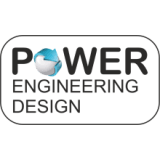Key Core Competence:
What makes them different from “the others” is that they carefully integrate technology and hardware components that already exist in the market bringing them to live by using their own concepts.
They provide considerable added value to their final niche products, by identifying appropriate client friendly performance goals and realistic outcomes; and by developing a clear and compelling user friendly technological proposition.
They provide innovative consultancy services in rural energy access and electrification; consultancy for preparing of technical documentation for execution of projects in water supply and sewerage. In designing solutions, they are eclectic energy designers: caring about practicing multidisciplinary and poly-technological way of designing appropriate solutions for today’s society.
They care about re-thinking the role of clean renewable energy solutions, by putting together sustainable business proposals using simple inputs able to create great outcomes; exercise the multi-sector approach, where clever energy and water technologies re-shape agriculture, preserve the treasures of ecosystems and influence people moving towards a zero-carbon society.
What they do with clean energy and water: They have learned to model and create working and affordable solutions for the benefit of citizens living in rural, remote, and isolated areas; in marine islands, desserts, and tropical locations, either off-grid (standalone) or connected to existing power distribution networks.
Niche Key Expertise:
Rural solar; Solar entrepreneurship; PV pumps; DC-nano-grids; Remote Off-Grid Power
- Niche core competence knowledge in projecting; designing; and implementing customized solutions made of special energy systems and financial models focusing on rural energy access and remote power solutions.\
- Real business interventions for entrepreneurship (creation of income through PV power in rural areas)
- Experience with solar PV DC-based nano-grids; low (DC/AC) and medium voltage equipment; control-monitoring tools; electric water pumping stations; and water distribution networks.
- Local key expertise in developing shrimp/fish solar based pumping and livelihoods.
Services
Consulting Services
Theyprovide consultancy services in Rural Energy Access and Electrification, including:
- -Market evaluation for future power and energy infrastructure project implementation
- -Market evaluation for road and civil infrastructure power implementation
- -Consulting activity for preparing of technical documentations for execution of projects in water supplying and sewerage field
- -Solving challenges and creating opportunities for growth of solar PV water pumping and other off-grid initiatives
- -Revealing unexploited market potential
- -Analyzing market, technology and regulatory related factors
- -Conducting Solar Business Training Programs
Designing Solutions
They are eclectic energy designers:
- -Carrying about practicing an eclectic, multidisciplinary and poly-technological way of designing appropriate solutions for today’s society.
- -Solve challenges of Technology Design: the ‘one-size-fits-all’ approach discourages meeting specific needs of the rural beneficiary; lack of standardization and quality assurance as most system integration efforts are led by program specifications rather than the end user’s needs.
- -Creating user customized Green Energy systems /eClusters/ which directly reduce emissions of harmful gases, help to build smart farming through sophisticated irrigation, require minimal maintenance and have a rapid return on investment.
- -Developing Cost Analysis, Market Analysis, Business and Pricing Models
- -Creating Renewable Energy based Financial Model Methodologies
Procuring and Supervising
They provide a full service package, including:
- -Planning, developing and managing a team of procurement and/or compliance staff and its work program to ensure the effective procurement of goods and services
- -Development, implementation and management of solicitation processes which are distinguished by their technical complexity
- -They generate, review, and analyze division procurement data; determine and make conclusions regarding patterns, trends, and problem areas; measure effectiveness of meeting procurement goals; develop recommendations for appropriate responses, including possible policy and procedural changes.



